Strange Loops with Jonathan Zawada
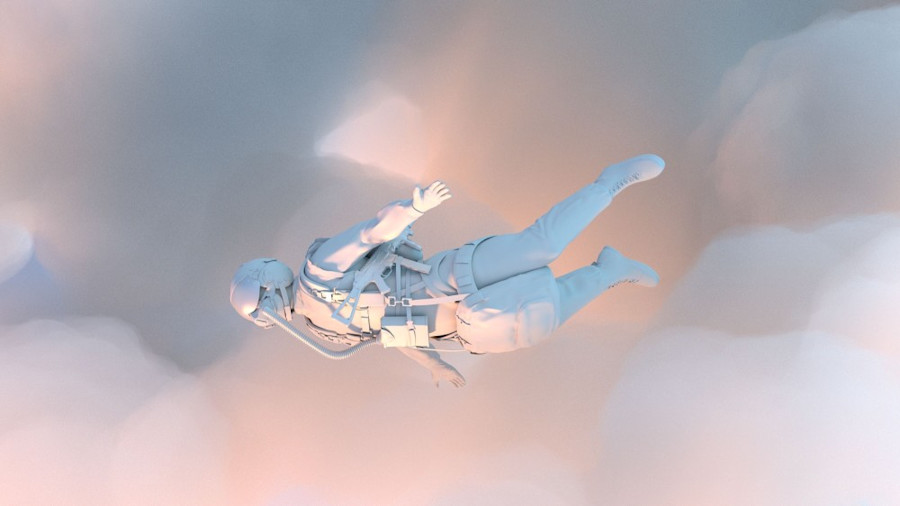
Jonathan Zawada (b.1981, Australia) is a multi-disciplinary artist from northern New South Wales, Australia.
Hi Jonathan!
Hey Chris, how's it going?
I'm going good. It's late. What are you up to?
Walking to my other house. My wife is telling me to watch out for snakes.
Tell us about that.
We moved back from LA last year around August and bought a place on the Northern Rivers district of NSW. It's a totally rural area, mostly dairy and macadamia farms. We've got 2 1/2 acres, mostly bushland, which adjoins a community-owned bigger tract of bush. So we have our house, then there's a separate guest house which is where my studio is. So I'm wandering out from the main house to the guest house, which is why Annie told me to watch out for snakes!
Why did you move back from LA?
It was initially prompted by family stuff. Our son was born with a rare genetic deletion disorder and has special needs. We had him in the US on our own, which was super hard-going when he was little and we didn't have family support. I don't know how interesting this (or anything) is but we were doing some big picture life planning and envisioning his future for when we were gone, and a lot of that involves having other family around to help him. We realised he didn't have any siblings at the time so we thought our only option was to bring him here while he was young so he could develop some better relationships with his cousins. That was the main reason we decided to move back. When you're thinking about moving country things can get complicated really quickly — 'but there's work' 'but there's this or that' etc. In this decision-making process there were no 'buts', we just had to make it work. [Moving to the country] was something we'd always wanted to do before we moved to LA, and then in this particular area we thought it was perfect to be close to family and for us to get a shot at living the life we always wanted to live, which is being away from the city and more into nature.

Do you find that change of location affects your practice at all? Is it subliminal or overt? Do you step on snakes regularly?
Nature has always been a running theme for me. Initially it started out as a universal language or something everyone could connect with — culturally independent. Obviously, the specificity of what plants you pick or the types of landscape you choose to depict all comes with baggage, but it exists outside of human culture whether we decide to draw it or not. That was one of the things that initially drew me to nature; it was this universal thing that transcended cultural limitations. Both my wife and I have always loved being in nature and we had pretty outdoorsy childhoods (of course, lots of Australians have outdoorsy childhoods). As it's become more overt and more detailed, my appreciation is less a shorthand for something else and more the actual thing; responding to my actual personal experiences of the nature around me as opposed to these versions of nature that looks or seems cool.
We moved to LA to focus on art and I had an exhibition where I painted a series of mountain ranges. The idea behind it was that the silhouettes of the mountain ranges were created from graphs of all this data I had mined. But some time before that show we drove all over the U.S, from Utah to The Grand Canyon, the sequoia national park, California, Arizona. Seeing real mountain ranges, it became really tangible and I realised my personal experience of nature (and not just the image of nature as a signifier of something else) meant I could actually respond to it and put my own human experience into it, which was something I'd never done before. That has increased now we're here. Prior to that point, I had a tendency to document that which I didn't have access to. I was drawn to things I couldn't have, so whether that was big amazing mountain ranges (because we don't have those in Australia) or whatever it happens to be now, I'm responding to and making reference to things in my immediate vicinity.
The specificity of what plants you pick or the types of landscape you choose to depict all comes with baggage, but it exists outside of human culture whether we decide to draw it or not.
Jonathan Zawada
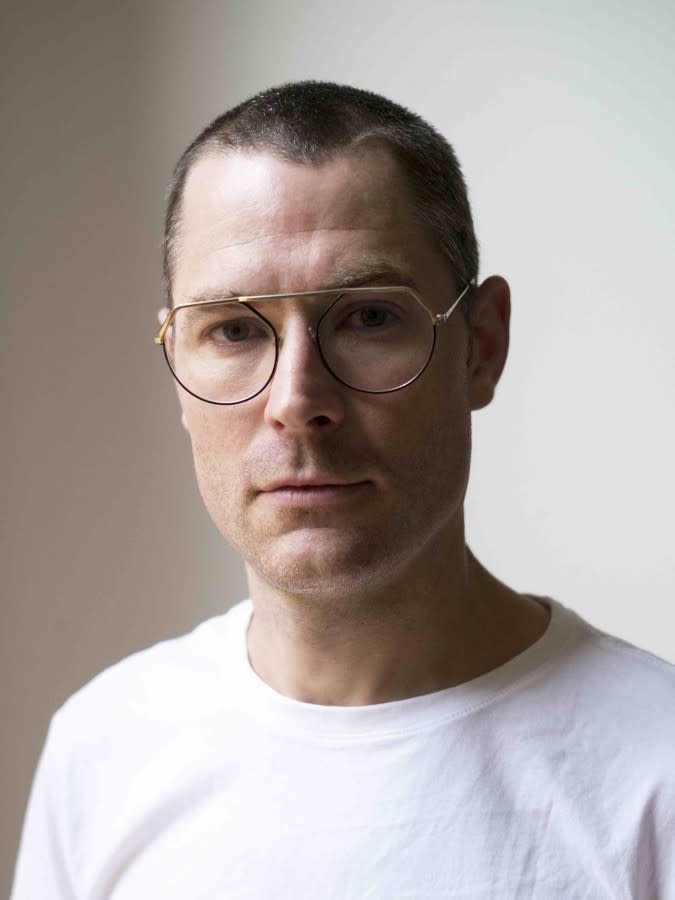
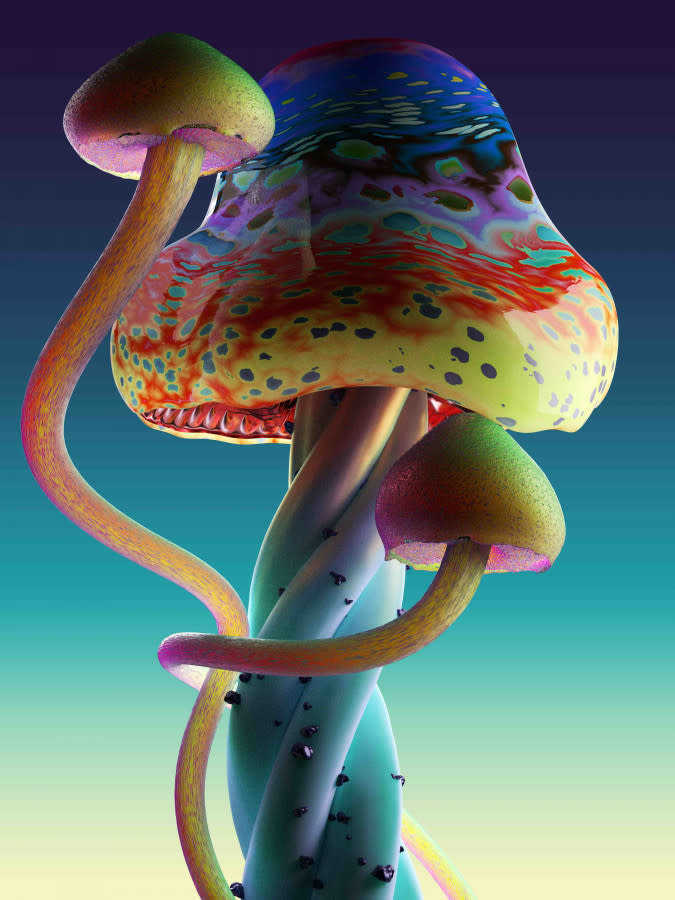
You make a lot of scientific references to writers like Claude Shannon and Douglas Hofstadter. What's your academic background like?
It's all for fun. I was, and still am, super interested in all aspects of science. I didn't study or go to Uni so there was never any framework for theoretical study in my work, but early on I was interested in colour and light and physics and the physics of light, which led me to all the pop-science stuff there is out there: Works like Stephen Hawking's A Brief History of Time and there was a great one called A Brief Introduction to Quantum Electrodynamics which is about the physics of light (because I was interested in the polarisation of light). Then it just started feeding back on itself really quickly. I started reading more about the history of computing and information technology: Claude Shannon, James Gleick, all these people who wrote about information theory. I didn't think it would have anything to do with my work, I was just making sense of the world.
With subjects like quantum electrodynamics, it's incredibly interesting but it only works in the abstract. I had been reading about genetics before my son was born and it was super interesting. Then all of a sudden it became uninteresting because his problems were very tangible, very practical and very, very real. But most of the science I read doesn't deal in reality, it deals in abstractions and statistics. I just got really turned off it because it felt so impractical and intangible.
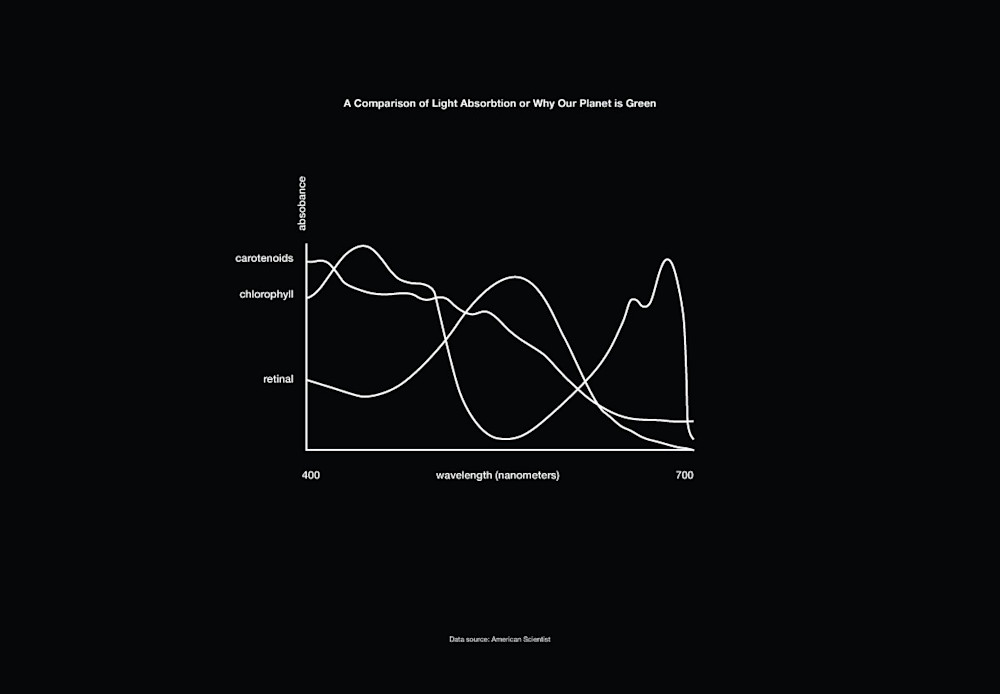
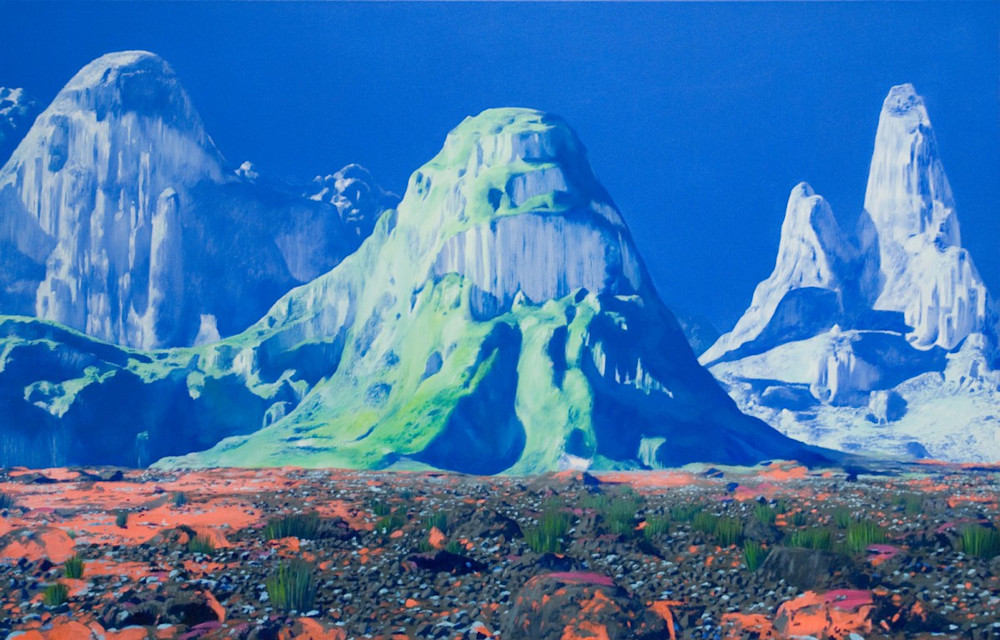
How do you calculate the right balance of the abstract and tangible in your practice? Like the ratio of science to art in every piece.
There's a big undercurrent in a lot of the software I've used where it's about maths, formulas, particle simulations and how things are constructed and manipulated. But there's a slippery slope because I have a real aversion to things that look like pseudo-science.
For a long time it was important that people can appreciate my work on an aesthetic level and you don't have to immediately understand the hidden aspect of it. You can appreciate the landscape or drawing of objects in space and you don't need to know they're arranged in a molecular structure. That was always a little challenge I'd put on myself, otherwise you end up making something that's too abstract and you think 'why bother drawing anything at all?'. Also, I never wanted to seem too overconfident that I understood these things in case I had it wrong.
You mentioned software generated art earlier. Do you ever think about the ownership of the piece when it's created in this way? Like if a machine creates the art, does it become the owner?
I've thought about this quite a bit recently, about why I was attracted to those methods of working. When you build node networks or procedurally generated pieces it's like building your own toy which you can fill with all the knobs and dials and numbers, then you can elbow it in the direction you find appealing and see what comes out of it. What I like is setting up a machine or a framework that I can play inside of. I still love drawing and painting without those boundaries or systems, but what I love about procedural systems is the capacity for uninterrupted experimentation — plugging X thing into Y thing it shouldn't be plugged into. Getting the system right is quite challenging and fun, but once it’s there I can create lots of variations and end up finding my way to something I wouldn't necessarily have.
But I know what you mean, you can end up being massively limited by the software and if you become too reliant on it the results aren't interesting. I've found there's a grace period of a couple of years when I'm learning software that I get the best results out of it, but once I know what I'm doing the results aren't as good. It's like 'I know what I want to achieve' so maybe there's less unexpected accidents and the whole thing isn't as interesting.
There's a big undercurrent (in a lot of the software I've used) of maths, formulas, particle simulations and how things are constructed and manipulated.
Jonathan Zawada

What about with the never-ending quest for hyperrealism — is this something you want to lean into or away from?
I struggle with that a bit. I've worked with an artist in China named Kim Laughton who does amazing stuff. His background is photography and he understands light better than anyone I've met. He's a very fastidious individual, but he's also aware that he's not creating reality. He knows where it's not real (even if the rest of us might not pick up on that) and that disconnect is very intentional for him.
Realism is not something I've ever really pursued, but as the software gets better it does become a by-product. It's weird because if you're not heading down that path you're getting lazy, but that doesn't have to be the only path to follow. That's something that attracted me to [3D software] Terragen, or any software that uses photon-bouncing in the rendering process. You can say 'well what if the atmosphere was X and it filtered out this wavelength of light and you end up with this colour of light on a planet, how does it affect everything?' When you put other colours in combination, how do you end up with the 'realistic' (in that it obeys the laws of physics and is not just random colouring) but it's unreal at the same time. That's more and more appealing to me — adding detail, getting into the weeds of the physics being real, but the realism itself not being so important.
What I love about feedback from procedural systems is the capacity for uninterrupted experimentation — plugging X thing into Y thing it shouldn't be plugged into.
Jonathan Zawada
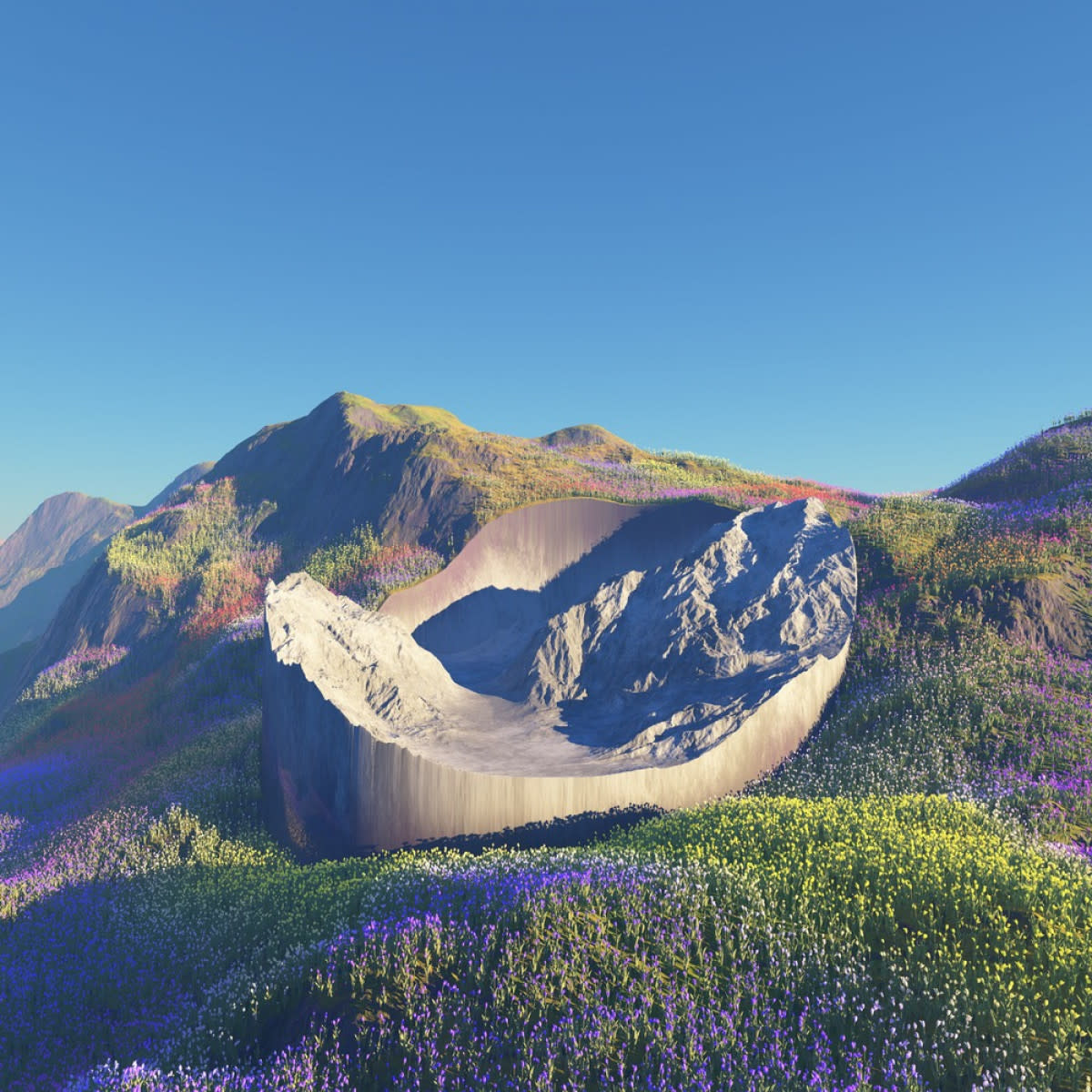
Why do you watch Twitch streams when you're working?
Haha. I don't really know. For about three years I watched one guy who played this game called DayZ. It's like listening to talk radio on the one hand, which I liked a lot. The other thing I really loved about it was that this guy from midwest America was pro-gun, loved fixing his car, drinking beer, playing this game (which I couldn't get into but enjoyed watching him play), but he was so civil with discussions and the chat was so civil too. It reminded me of the first time I was using the internet as a 16-year-old in the mid-‘90s. Like good-natured people with good intentions. When Trump was elected and everyone said 'well everyone on the coast forgot about the people in the middle' I think I was aware I was doing the same thing in a bit of an echo chamber around people doing the same stuff as me. Finding someone like that on Twitch was a great way for me to broaden my horizons.
What do you think about games like Second Life or VRChat? Do you have a virtual persona that's different to you in real life?
That's super interesting. I remember when Second Life first came out I was so excited about it. I remember downloading it and messing around in it and showing my wife who just said 'what is this? This is so disturbing. You've found some horrible corner of the internet which is just gross'. My avatar was completely naked without genitalia, white and skinny and bald. Basically me as a skinny white guy with a shaved head. I thought I'd make myself look like an extreme version of me – but not cool or anything. So I was bumming around in Second Life but I quickly realised how boring it was. People were building regular houses that obeyed the same laws of gravity that our houses did in the real world, and they had big screen TVs and fountains and I was thinking 'you have this virtual environment where anything is possible and you're just recreating stuff that only exists in the real world because of the laws of physics. Why is this so boring?' And people didn't respond well to my naked white avatar, so I quickly self-ejected myself from Second Life and never went back.
Once I know what I'm doing the results aren't as good. It's like 'I know what I want to achieve' so maybe there's less unexpected accidents and the whole thing isn't as interesting.
Jonathan Zawada
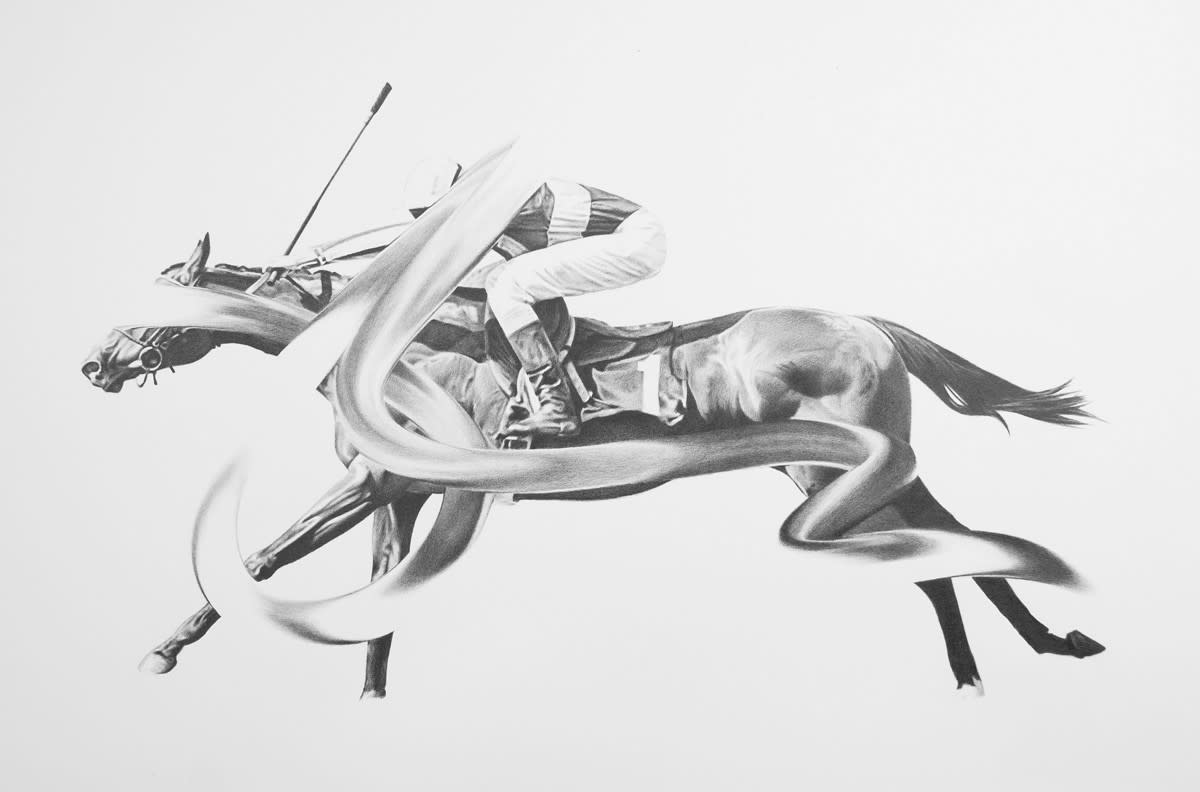
How optimistic are you about technology in general?
I’m pretty pessimistic about a lot of it. It makes me lazy. Going back to your first question, another reason we moved back to Australia was that in LA we'd have our downtime on the weekend, and we'd all be on different devices: my son would be on his iPad, my wife would be on Facebook and I'd play Star Wars: Battlefront for three or four hours in the afternoon. I was thinking that all the energy people put into these things (and I developed this perspective from watching Twitch too) is energy that all of us are inclined to want to do things in our lives. Video games are compelling because you're off and shooting things to make sudden changes in the environment, but ultimately the actions in my life should have some concrete consequence to them. There should be some outcome. Now we have a big block of land that needs constant attention — there are invasive weeds that need to be gotten rid of and a million and one things to do. If we're there, I'll be busy doing things that have a point.
I have all sorts of other pet peeves, culturally speaking. There's a tendency in the economics of tech companies to prioritise renting rather than selling, and subscriptions rather than sales. I think we'll end up in 10-20 years time realising that had massive consequences. People won't be able to afford the ongoing expenditure of arts and culture. They’ll retire and won't be able to afford to pay for Spotify anymore and realise they don't have music in their lives. It would be depressing thing to think that we once had libraries and free access to stuff, or you could build your own libraries of music and books you owned until you died, but we changed as society so that when you stop working and can't afford it you don't get access to arts and culture anymore. Everything that comes out is carefully calculated to make money and we get more and more efficient in doing that to the deprivation of freedoms and liberties. That's why I try and use computer software like Blender which is open-source. For a long time I tried really hard to be all open-source so I could circumvent that. By and large that can work well but it's not totally escapable.
Sorry, that was a long rant that makes me sound crazy.
You’ve spoken previously about a hesitancy towards VR, so how do you achieve immersion in your work?
In my experience of making work and seeing people respond to it, immersion is less about autonomy. If the idea that immersion means being left alone in an environment to wander around and poke at things, then all the techniques we used to have to cultivate an idea or get across a mood go out the window.
Over hundreds of years we developed techniques of composition and framing and, when it comes to film, timing and all sorts of things. Where I see people feel incredibly immersed is when the viewer has seen something that felt unusual or challenging — that doesn't have to be complicated. If you achieve a moment where someone feels like they haven't seen anything like it before and it's incredibly simple, that is undeniable. But when that's the result of thousands of dollars of technology and headsets it becomes a magic show rather than a pure experience that feels genuinely gratifying.
I find it amazing that anyone can go walking off into a mountain and feel amazing or you see something incredible like a dragonfly landing on your hand and it's a bright blue colour. There's nothing crazy about that — the dragonfly isn't made of copper and it isn't trailing pink smoke. You might see a bank of trees, and every tree you've ever seen in your life is green and these trees are green too, but it can still be powerful and beautiful and gratifying in a much deeper way then the bells and whistles stuff can never be. I think deep down people can see through that a little bit and are aware when they're being tricked.
Can you list a book, movie and song that would be a 'Jonathan Zawada 101'?
- Book: I Am a Strange Loop by Douglas Hofstadter. He made the I've ever seen in my life and he's a scientist. But the book is incredible — he really grappled with science in its abstract form and in a practical, deeply human meaning.
- Film: Adaptation because that always feels perfect to me.
- Song: That’s a really hard one for me because picking one means I'm not picking another. The Dreaming by Kate Bush is so amazing and so wild. All of her work grapples with abstract issues on a really human scale, and then makes it fun too.
Last question – what's the final frontier?
It's a totally individual and personal thing, where you slowly chip away all the things you thought were important or distracted you or didn't work so you can focus on something that you can project far beyond your reach. Whether that's emotional or academic or artistic, that's it for me.